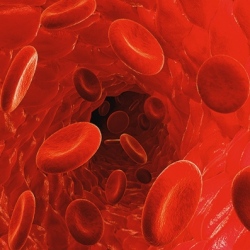
Strokes, heart attacks, and traumatic brain injuries achieve a common end: cell death due to hypoxia, or lack of oxygen. In these diseases, a lack of blood supply to affected tissues begins a signaling pathway that ultimately halts the production of energy-releasing ATP molecules, a death sentence for most cells.
By employing derivatives of humanin, a naturally occurring peptide encoded in the genome of cellular mitochondria, researchers at Ben Gurion University of the Negev are working to interrupt this process, buying precious time for tissues whose cellular mechanisms have called it quits.
“The present findings could provide a new lead compound for the development of drug therapies for necrosis-related diseases such as traumatic brain injury, stroke and myocardial infarction, conditions for which no effective drug-based treatments are currently available [that work by blocking necrosis],” said Abraham Parola, a professor of biophysical chemistry at Ben Gurion University of the Negev in Beer-Sheva, Israel.
Parola’s previous work has dealt with membrane dynamics and the mechanism of action of anti-angiogenesis drugs, which cause starvation of malignant tumor growths by preventing the supply of nutrients and oxygen to the fast growing tissue, in addition to various other biophysical and molecular medicine and diagnostic topics.
“A recent paper published by our group suggested the involvement of cardiolipin [a phospholipid in inner mitochondrial membranes] in the necrotic process,” Parola said. “During this work we stumbled along humanin and were intrigued by its anti-apoptotic effect, and extended it to anti-necrotic effect.”
